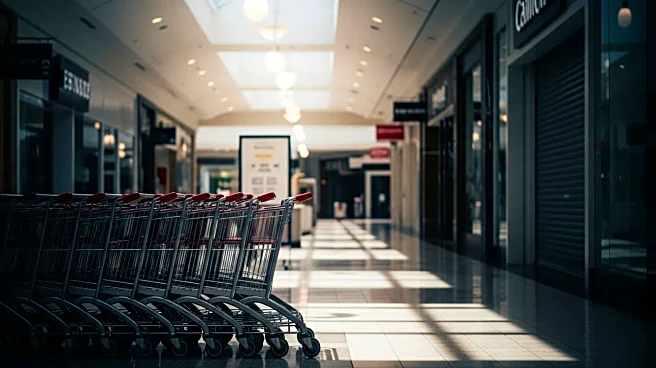What's Happening?
The future of shopping malls in the Pittsburgh area is becoming increasingly uncertain, as some malls are being demolished while others continue to thrive. This trend reflects broader changes in the retail
industry, where traditional malls are struggling to adapt to shifting consumer preferences and the rise of online shopping. The situation presents a mixed picture, with some malls finding ways to reinvent themselves and attract customers, while others face closure.
Why It's Important?
The changing landscape of shopping malls in Pittsburgh is indicative of a larger transformation in the retail sector. As consumer habits evolve, malls must adapt to remain relevant, impacting local economies and employment. The decline of traditional malls could lead to job losses and reduced economic activity in affected areas, while successful reinventions could boost local commerce and provide new opportunities. This shift underscores the need for innovation and adaptability in the retail industry.
What's Next?
As malls in the Pittsburgh area navigate these challenges, stakeholders will likely explore various strategies to revitalize and repurpose mall spaces. This could include introducing new retail concepts, entertainment options, or community spaces to attract visitors. Local governments and businesses may collaborate to support these efforts, aiming to preserve economic vitality and employment. The outcome will depend on the ability of malls to innovate and meet changing consumer demands.
Beyond the Headlines
The uncertainty facing Pittsburgh-area malls may also prompt discussions on urban planning and the future of retail spaces. As malls evolve, they could play a role in shaping community development and urban landscapes. This situation highlights the need for strategic planning and investment to ensure that retail spaces contribute positively to local communities and economies.









